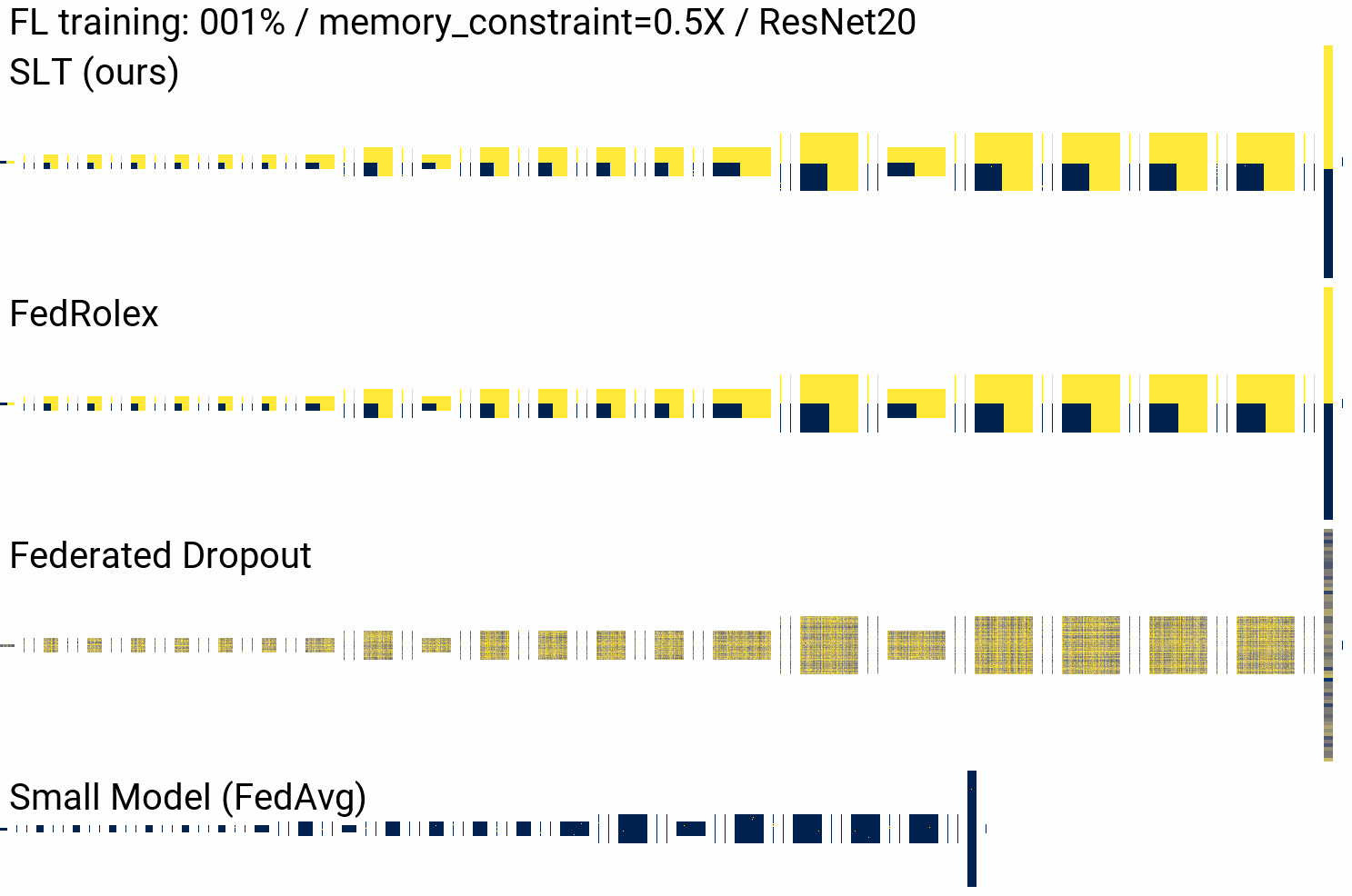Expanding the Reach of Federated Learning by Reducing Client Resource Requirements
Communication on heterogeneous edge networks is a fundamental bottleneck in Federated Learning (FL), restricting both model capacity and user participation. To address this issue, we introduce two novel strategies to reduce communication costs: (1) the use of lossy compression on the global model sent server-to-client; and (2) Federated Dropout, which allows users to efficiently train locally on smaller subsets of the global model and also provides a reduction in both client-to-server communication and local computation. We empirically show that these strategies, combined with existing compression approaches for client-to-server communication, collectively provide up to a $14\times$ reduction in server-to-client communication, a $1.7\times$ reduction in local computation, and a $28\times$ reduction in upload communication, all without degrading the quality of the final model. We thus comprehensively reduce FL's impact on client device resources, allowing higher capacity models to be trained, and a more diverse set of users to be reached.
PDF Abstract ICLR 2019 PDF ICLR 2019 Abstract


 CIFAR-10
CIFAR-10
 MNIST
MNIST
 EMNIST
EMNIST